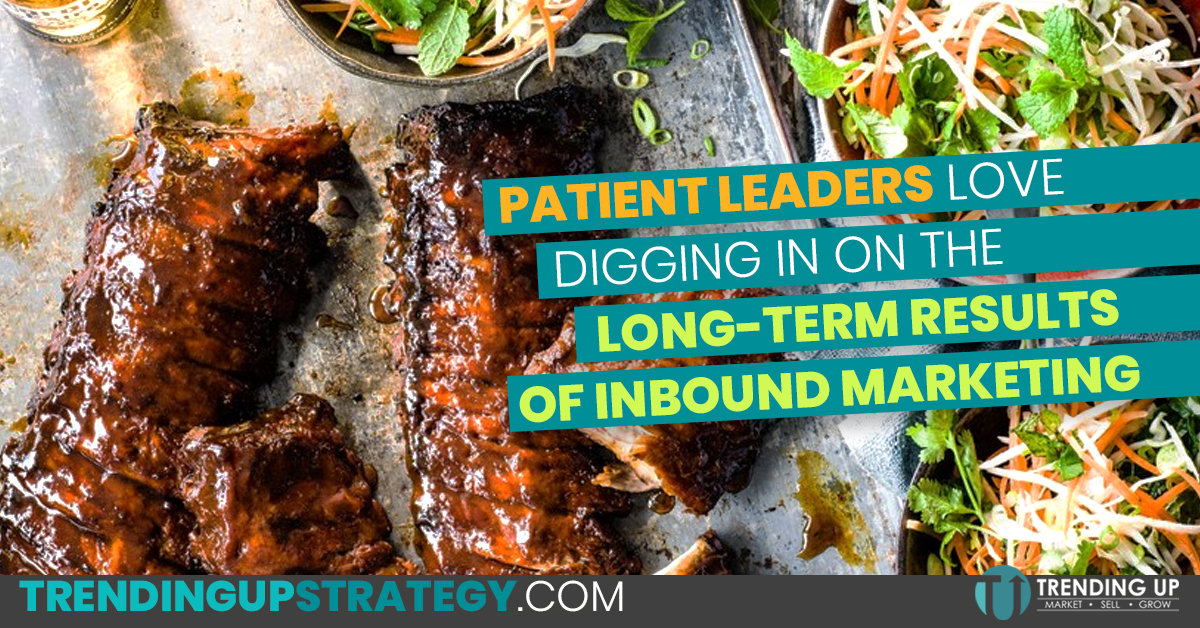Do You Need a New B2B Marketing Strategy? 10 Questions to Ask
As a business leader for a B2B company, you have responsibilities company-wide: caring for your employees, making sure customers are happy, ensuring...
3 min read
![]() Alicia Westphal
Jan 12, 2017
Alicia Westphal
Jan 12, 2017

Marketing teams are under increased scrutiny today thanks to the advent of Big Data. Executives can analyze everything from overtime cost/benefits and depreciating machinery assets to the return on investment of a single employee to the advantage of healthy vending machine options versus junk food choices. It’s no wonder that business leaders are looking for better, more exact return analysis for their marketing budgets, as well.
There are some ways to make traditional marketing methods more measurable; we covered a few of them in our recent ebook, including print ads, direct mail, email marketing, and trade shows.
Today’s post is focused on a marketing strategy tactic that’s become an industry buzzword: content marketing. “Content” includes everything published by your company:
I will argue that creating relevant content for your audience is paramount to the success of your marketing strategy and a measurable, cost-effective solution for which you can show results. The effect of a content marketing strategy is magnified when used in conjunction with a content platform that allows for immediate results analysis, such as HubSpot. Here some of the ways that a strategy of relevant content solves the need for measurable results from the marketing department.
 Writing content for the sake of content is a waste of time. However, excellent content written to meet the needs of your visitors, leads, and customers - now that is worth talking about. Fill an obvious need for your audience by taking the time to research your audience and create useful content for them.
Writing content for the sake of content is a waste of time. However, excellent content written to meet the needs of your visitors, leads, and customers - now that is worth talking about. Fill an obvious need for your audience by taking the time to research your audience and create useful content for them.
The best way to do this is by creating a content plan that aligns with your overall marketing strategy. The strategy should be driven by your personas: their questions, problems, issues, and how you are able to best solve them. Using that knowledge, build a successful marketing and sales strategy and then, from there, a defined content plan.
I read a recent article by Jayson Demers that summed this up better than I ever could: “...go the extra mile to ensure your content is original, useful, and better than anything else in its league. The extra effort will earn you disproportionately higher results, and you'll wind up with a far higher ROI--not to mention a boost in your brand's reputation.”
This is an oft-quoted statistic in the world of inbound marketing, but I repeat it again here because it’s so dang important: B2B buyers complete 57% of their buying journey before they ever speak to your business. Similarly, the statistic claiming that 67% of the buyer’s journey is now done digitally. That alone should be a huge push for your business to produce online content built to educate prospects who are looking for answers. And that ties directly into the next way that content strategy gives measurable results:
 When your marketing goals are aligned with the "money-making arm" of the business - sales - you are not only perceived as a team player, you're also allocating resources in a more efficient way. Your marketing team is responsible for the first two-thirds of the buying process; support your prospects through offers that assist them through the buyer’s journey until they’re ready to make a purchase decision and speak to someone directly on your company's sales team.
When your marketing goals are aligned with the "money-making arm" of the business - sales - you are not only perceived as a team player, you're also allocating resources in a more efficient way. Your marketing team is responsible for the first two-thirds of the buying process; support your prospects through offers that assist them through the buyer’s journey until they’re ready to make a purchase decision and speak to someone directly on your company's sales team.
The data to track that proves success is the number of converted visitors to leads, and the number of marketing-qualified leads that go on to become sales-qualified leads. We published a recent blog post about this topic here. With sales and marketing working toward the same goal and measuring the same content, your business will be on its way to success.
The test of relevance is the data behind each piece of content. Ask yourself these questions to test the effects of what you’ve published:
These are some great starter questions to determine the success or failure of the subject matter, medium used, distribution type, and timing of the content. Continuous trial and testing are needed to determine the optimal mix for your audience - but each is measurable and empowers you to prove the need for content in your marketing strategy.
LEARN MORE ABOUT OUR PROVEN, REPEATABLE MARKETING PROCESS - PERFECT FOR MANUFACTURING COMPANIES

As a business leader for a B2B company, you have responsibilities company-wide: caring for your employees, making sure customers are happy, ensuring...

There’s a ton of reasons to swing into the drive-thru and grab yourself a quick bite of a seasonal McRib sandwich. You’re thinking about the "right...

Sure, inbound marketing can be great for B2C companies. Creating interesting content for those companies is a great way to increase leads with...